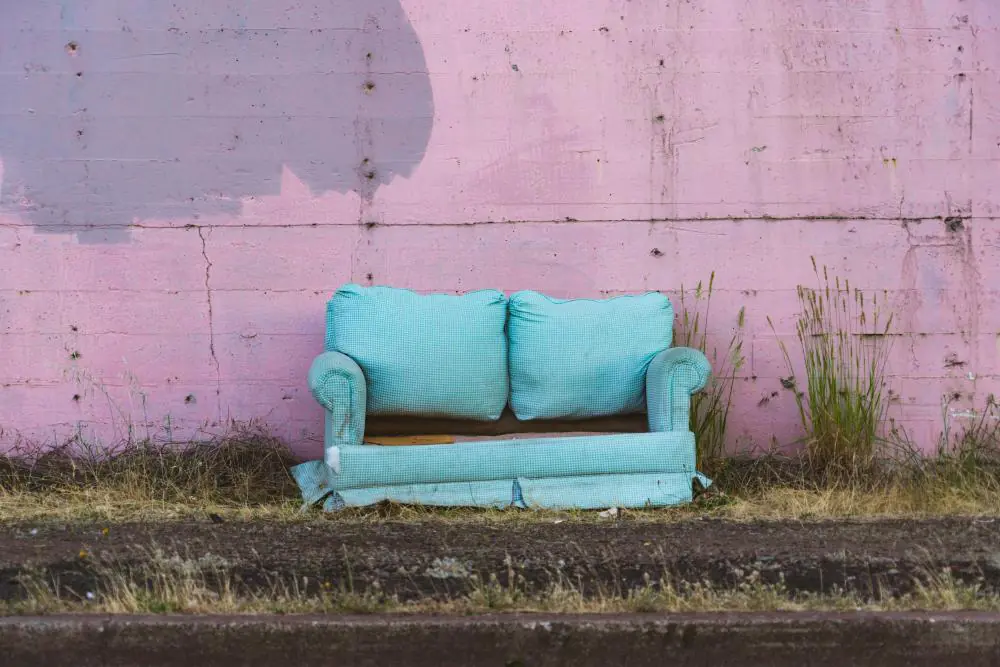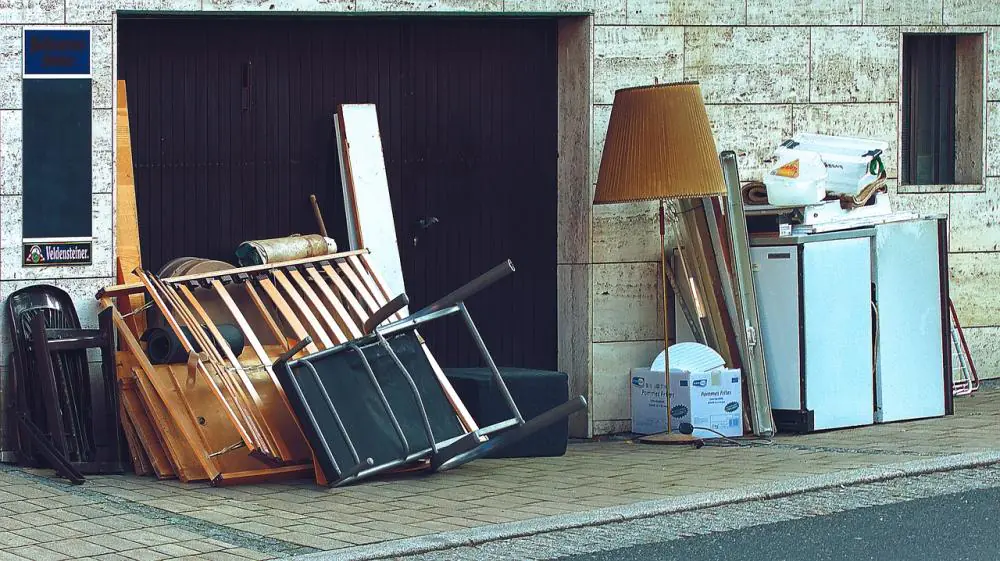How 'Fast Furniture' is Negatively Impacting Our Planet
The era of fast furniture is upon us, and it’s never been easier to fill our homes, offices and hospitality venues with these mass-produced items.
Sharing similar qualities with its equally ethically questionable counterparts, fast food and fast fashion, fast furniture is churned out rapidly to satisfy immediate demand. Sadly, little care is given to each piece's quality or long-term functionality.

As well as lowering the standard of manufacture and promoting cheap labour, fast furniture is detrimental to our planet.
In this article, we’ll investigate exactly what fast furniture is, how it impacts the environment and offer some practical hopeful alternatives.
What is Fast Furniture?

Fast furniture refers to easy-to-assemble, flat-pack style furniture. While convenient and cheap, they’re often made of flimsy materials, trend-focused and not built to last.
Their design means they are just as easy to ditch as they are to obtain. As a result, cheap furniture is frequently tossed into a landfill when it’s no longer fashionable.
Why Does Fast Furniture Exist?
Aside from the convenience and bargain price, it’s been suggested that fast furniture has grown to accommodate the increasing number of renters who live more mobile lives.
Since fast furniture is so cheap, people opt to buy and discard it rather than carrying it around or paying to hold it in storage.
What is the Problem with Fast Furniture?

Fast furniture has several negative impacts on the planet and the environment; a few main concerns are outlined below.
Extraction and Pollution:
Fast furniture pays little regard to conserving the earth’s natural resources. Instead, it contributes to deforestation, habitat destruction, excessive water consumption and increased carbon emissions.
It’s a primary contributor to deforestation – one of the leading contributors to climate change. Also, the excessive use of plastic similarly strains water resources.
Other synthetic fibres, such as polyester, nylon and acrylic, are made from fossil fuels that also take large amounts of energy and resources to extract and manufacture.
Planned Obsolescence:
Fast furniture is designed to have a short lifespan, catering to current trends and demands. It’s not unusual for furniture to last only a couple of years before breaking or becoming outdated.
It may sound cynical, but often this is part of the business model, as it encourages people to replace their purchases and consume more frequently. This practice is inherently unsustainable.
Increased Waste:
Elements in cheap furniture such as synthetic dyes, leather tanning chemicals, adhesives, lacquers and other artificial or non-ecofriendly materials prevent furniture from breaking down and make recycling more complex.
Not only does this mean fast furniture remains in landfills for years, but it can also leak harmful chemicals such as formaldehyde, volatile organic compounds (VOCs), and flame retardants into the earth as it lingers.
Breaking Away From Fast Furniture
Decorating without fast furniture is possible, although it may take more time and consideration. Below are some tips for setting you on a path for more ethical consumption.
Change your Mindset
If you want to break away from fast furniture products, you don’t have to go cold turkey overnight. After all, stripping your home to make way for new eco-friendly furniture is not sustainable either.
Instead, pay more attention to your future buying habits and the products you consume. Be intentional with each purchase: consider the materials, how you will use them, and each piece's lifespan.
Avoid trend cycles and instead focus on classic furniture that will stand the test of time.
French furniture, with its iconic motifs and timeless colours, is an excellent choice that will always be stylish. The same applies to a traditional coffee table or a hardwearing dining set.
Evaluate the Cost-Per-Use
Fast furniture caters to our appetite for immediate results and low prices. Undeniably, these are massive selling points and often the most suitable option for tight budgets.
Investing in more durable furniture can be worth the extra cost if you have the flexibility to shop around. Robust, long-lasting items won't need to be replaced as often, making them cost-effective in the long run.
Pay Attention to Materials
Visit eco-friendly shops that utilise certified timber and natural textiles in their furniture.
At Sustainable Furniture, many of our products are made from various wood species. We ensure all timber is sourced in the most environmentally friendly and ethical way. The following are some examples of our sustainability practice:
- Reclaimed timber: We recycle previously used wood into beautiful new furniture.
- Imported timber: We utilise FLEGT (Forest Law Enforcement, Governance and Trade ) certified wood to guarantee that it’s legally harvested and ethically sourced.
- Locally grown timber: We incorporate species such as Douglas Fir, grown responsibly in Cornwall.
Find Alternative Ways to Shop
Consider exploring second-hand shops, antique stores, and online resale marketplaces to give old furniture a new life. Often you will find that well-constructed second-hand furniture will outlast new flimsy furniture.
Nowadays, you can even rent furniture, which is excellent for short-term tenancies and is much better than buying cheap furniture to throw away when you leave.
Extend Lifespan
The fast furniture industry operates linearly: buy, use until expiry, and replace. Close the loop by valuing and maintaining your items. Often damage isn’t permanent, and regular upkeep with appropriate furniture treatment can keep problems at bay.
To further extend the life of your furniture, consider upcycling, donating or selling secondhand rather than throwing it away.
Swap Your Fast Furniture For Sustainable Furniture
Shop with Sustainable Furniture for a range of homeware to adorn your indoor rooms and outdoor garden spaces.
From durable and functional furniture to ethically sourced home accessories, you can dress your surroundings without worrying about the environmental consequences.
If you have any questions about our products, please don't hesitate to contact our team, who will happily answer any questions. Leave a message via our online contact form or call us on 01726 884123.
